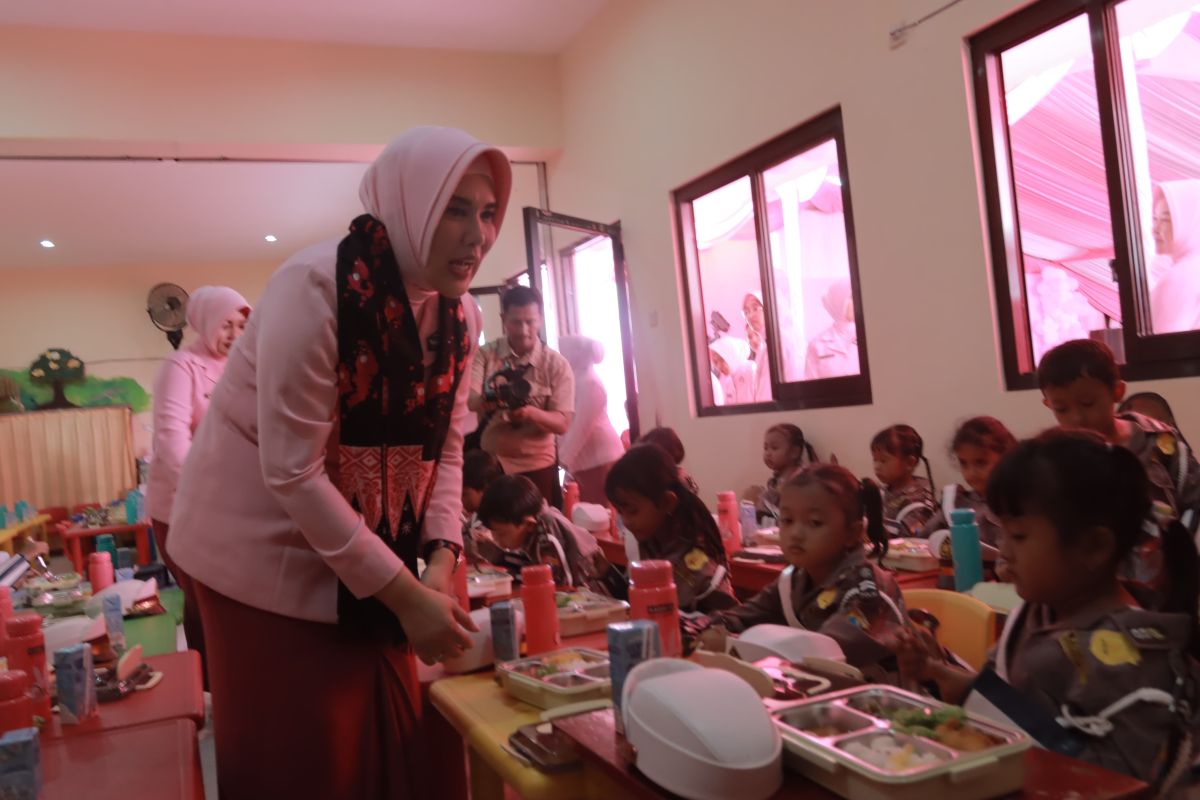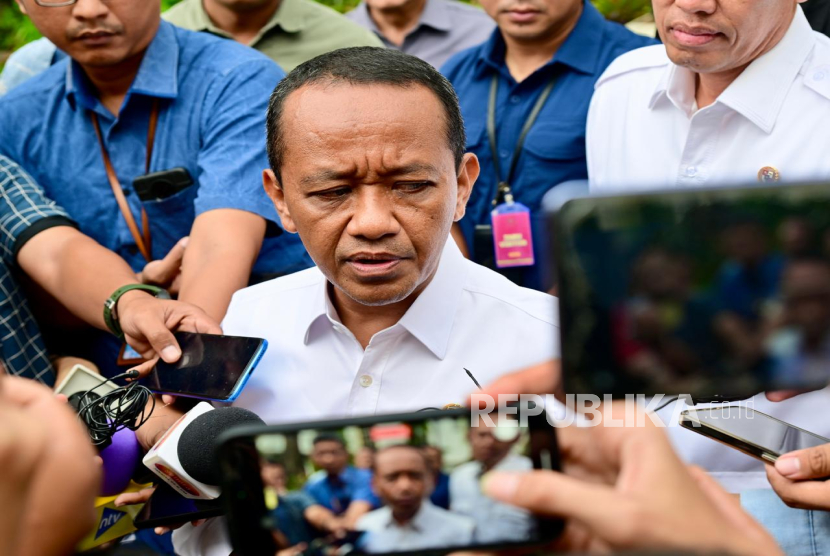Expert Says BMKG's Budget Cut May Disrupt Disaster Early Warning System
DPR supports BMKG in maintaining the budget for weather, earthquake, and tsunami early warning systems amidst budget efficiency policies.

TEMPO.CO, Jakarta - The Indonesian Meteorology, Climatology, and Geophysics Agency () is one of the government agencies affected by budget efficiency through Presidential Instruction Number 1 of 2025 regarding Budget Efficiency in the Implementation of the 2025 State Budget (APBN) and Regional Budget (APBD).
During a hearing with the House of Representatives (DPR) Commission V on Thursday, February 6, 2025, it was revealed that BMKG's budget was cut by 50.35 percent, from the initial Rp2.826 trillion to Rp1.423 trillion.
Head of BMKG's Legal, Public Relations and Cooperation Bureau, Muslihhuddin, said the agency requested budget dispensation because of fears that this budget efficiency would have an impact on many Main Operating Tools (Aloptama) which are at risk of becoming inoperable due to reduced maintenance capability by as much as 71 percent.
As a result, he said, the observation and detection capabilities of weather dynamics, climate, air quality, earthquakes, and tsunamis will also be disrupted.
He cited nearly 600 earthquake and tsunami monitoring sensors spread across Indonesia. The majority of them, he said, have outlived their operational life. The existing maintenance capability, which is to be reduced by up to 71 percent, is feared to decrease the speed of tsunami early warning information from 3 minutes to 5 minutes or more.
Consequently, the dissemination range of earthquake and tsunami information will also decrease by 70 percent. "The accuracy of weather, climate, earthquake, and tsunami information has dropped from 90 percent to 60 percent," said Muslihhuddin, as quoted by Antara.
Expert: Budget Efficiency Affects Global Perception of Indonesia in Earthquake System
Several disaster experts have reminded the government to consider the risk of losing global trust in Indonesia if the budget for earthquake and tsunami early warning monitoring systems is cut in the name of efficiency.
Chairperson of the Indonesian Disaster Experts Association (IABI), Harkunti Pertiwi Rahayu, said that Indonesia's earthquake and tsunami early warning monitoring system (InaTEWS) plays a crucial role in national and regional disaster risk reduction, and is even becoming a mainstay for 28 countries in the Indian Ocean.
The InaTEWS system, managed by BMKG, was first developed after the 2004 Aceh tsunami and is now equipped with advanced technology based on sensors, artificial intelligence (AI), and big data. This system is trusted by various countries such as Japan, Seychelles, Bangladesh, India, Morocco, Australia, and China.
"The government's efforts to cut the budget are understandable due to several efficiency considerations. However, unfortunately, it is necessary to have priorities, especially for disaster-related sectors, especially the operational monitoring and early warning system for tsunamis," said Harkunti in Jakarta on Tuesday, February 11, 2025.
The Bandung Institute of Technology (ITB) researcher said the budget cut is feared to affect the system's operation and potentially hinder its performance. "The trust of 28 countries in Indonesia could be lost if the system cannot run optimally due to budget cuts in the name of efficiency," she said.
She added that building global trust, especially in the field of disaster management, is not easy. Indonesia has long been a pioneer in disaster mitigation, and the decision to cut the budget could have a negative impact on the country's image and preparedness.
Harkunti also highlighted the importance of maintaining and ensuring the operational sustainability of InaTEWS equipment. "This equipment cannot be left idle because if it is not operated and maintained continuously, it will be damaged," she said.
For this reason, she recalled the 2004 Aceh tsunami tragedy that killed 170,000 people in Indonesia and 50,000 others in countries around the Indian Ocean due to the absence of an early warning system at that time. As a country located in the Pacific Ring of Fire and prone to geological disasters, Indonesia is highly dependent on the detection and monitoring equipment that has been built.
On the other hand, she said, relying on funds from international institutions or philanthropy to cover operational costs is not a short-term solution that can be relied on suddenly.
"And one more thing, the budget for disaster response should not be cut. We never know when and how big the disaster will be in 2025. That is why we need exceptions in this area," she emphasized.
BMKG Head Dwikorita Karnawati: Earthquake and Tsunami Mitigation Budget Maintained
Head of BMKG Dwikorita Karnawati stated that the budget related to earthquake and tsunami mitigation is still maintained amidst the budget efficiency policy.
"Here, in the earthquake and tsunami management category, it is maintained at Rp41.9 billion, including earthquake field schools," she said during a working meeting with the DPR Commission V as BMKG's working partner in Jakarta on Wednesday, February 12, 2025.
Dwikorita mentioned that budgets for other public services are also maintained, such as BMKG's applied climate information services reaching Rp70,800,000. She also stressed that BMKG's budget efficiency does not affect salaries or performance allowances. The budget would remain in accordance with the initial allocation of Rp847,243,319.
The Budget Implementation List (DIPA) or the detailed budget allocation of BMKG for 2025 amounts to Rp2,826,897,302,000. With the budget cut policy, there will be a reduction of Rp1,423,397,000,000. Thus, BMKG's budget allocation after the efficiency is Rp1,403,500,302,000.
On Tuesday, February 11, 2025, Dwikorita stated in a meeting with the Finance Ministry's Directorate General of Budget, that there was a budget efficiency restructuring so that BMKG's budget allocation could be Rp1.78 trillion.
She said this would be further discussed in detail with the DPR Commission V in the next meeting. She hoped that with the support of the DPR Commission V, the reconstruction would soon be legally approved.
"Hopefully, with the support of Bapak/Ibu (members of DPR Commission V), the budget restructuring will soon be legally approved and [the budget is] even increased," she said.
DPR: Early Warning System Budget Must Be Maintained
The DPR Commission V supports BMKG in maintaining the management and early warning system budget for weather, earthquake, and tsunami, amidst budget efficiency policies.
"The maintenance of the early warning system, for example, and matters related to public interest, public services, weather information, and early warnings, should not be affected [by the budget cut policy]," said Chair of the DPR Commission V, Lasarus, during a working meeting with the commission's working partners, including BMKG, on the budget efficiency, on Wednesday, February 12, 2025.
According to him, the budget related to these matters at BMKG must be maintained to ensure the safety of the Indonesian people from the impact of disasters or extreme weather.
"Thus, BMKG can continue to provide important information for our safety in the event of disasters, weather warnings, and so on," he said.
Presidential Palace Denies 50 Percent Budget Cut for BMKG
Head of the Presidential Communication Office, Hasan Nasbi, denied that BMKG's budget was cut by 50 percent. "It is not true that BMKG's budget was reduced by 50 percent. Please reconfirm with BMKG for the latest data," he said in a written statement on Tuesday, February 11, 2025.
Hasan explained that four areas were protected from budget cuts, namely employee salaries, priority basic services for employees, public services, and social assistance. "So is a public service that is ensured to be optimal," he said.
"The efficiency in line with President Prabowo's directives aims to eliminate 'excessive fat' from our state budget spending without weakening the muscle (essential programs). The government's efforts and capabilities will not drop because of this 'fat reduction'," he concluded.
Eka Yudha Saputra and Antara contributed to the writing of this article.
Editor's Choice:
to get the latest news updates from Tempo on Google News



















